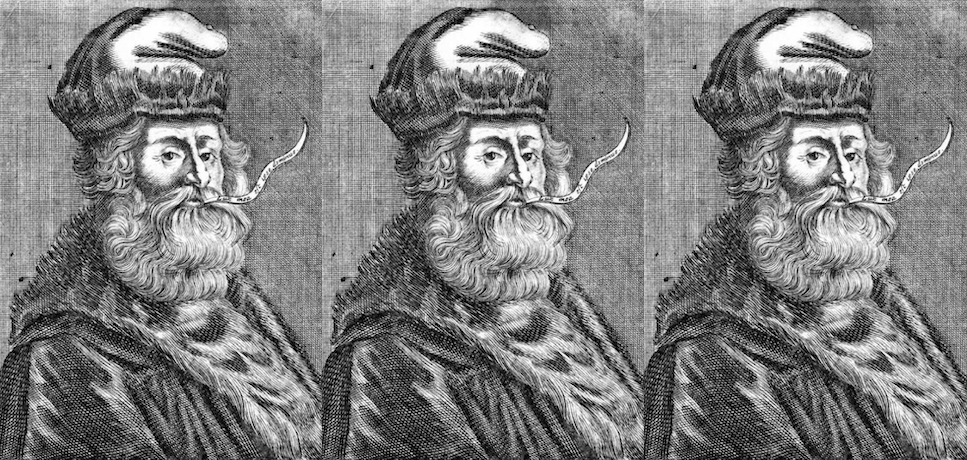Lit Hub Weekly: June 24 – 28, 2019
THE BEST OF THE LITERARY INTERNET

- Annie Proulx on one of her favorite short stories, William Gass’s “The Pedersen Kid.” | Lit Hub
- “Everybody wanted Orwell’s ghost on their side.” Dorian Lynskey on how the message of a book can change radically over time, and why we should all reread 1984. | Lit Hub
- “One remark speaks to the dilemma all writers must live with: eternal doubt, the inability to judge the worth of what one has created.” Paul Auster on the time he met Samuel Beckett. | Lit Hub
- Norman Mailer’s moon landing misgivings, Svetlana Alexievich’s unflinching oral histories, gay panic in America, and more of the reviews you need to read this week. | Book Marks
- The CrimeReads editors make the quixotic attempt to round up the best crime novels of the year (so far). | CrimeReads
- The best books to read at every age, from 1 to 100. | The Washington Post
- Are these the 50 best memoirs of the past 50 years? Let the arguments begin. | The New York Times
- Read an excerpt from E. Jean Carroll’s What Do We Need Men For?, in which she details her sexual assault by a hideous man who is now the president. | The Cut
- Why are prisons banning books that teach programming? | VICE
- “For many of us in diaspora, losing Binyavanga Wainaina felt like we were left with one less heartbeat in our chest.” Tavia N’yongo remembers Binyananga Wainaina, who died in May. | N+1
- “The prose lineage she belongs to is that of open eyes, all scene, one where human connection is tacit.” Italo Calvino on Natalia Ginzburg, “the last woman on earth.” | The Paris Review
- How Read With Jenna, the monthly book club run by Today co-host Jenna Bush Hager, became “publishing’s most coveted seal of approval.” | Entertainment Weekly
- “It was true that the food was not very good.” Read a new short story by Emma Cline. | The New Yorker
- “The problem isn’t Twitter. It’s publishing’s lack of support for marginalized people and lack of care to invest in us AND in training themselves.” Is the culture of YA Twitter toxic, or necessary? | BuzzFeed News
- “There are probably all sorts of reasons that people voted for Trump. I can’t blame it on True Detective.” Emily Nussbaum on anti-heroes, audiences, and the theater of criticism. | Longreads
- Did you know: Andy Warhol used to make picture books for friends and clients, including this “surreal fairy tale starring a sassy chimney, some hard-partying chairs, and a horny headboard.” | Interview
- In which Dwight Garner makes a good case for you to read Iris Murdoch, born 100 years ago, despite the fact that her “posthumous reputation is in semi-shambles.” | The New York Times
- Colson Whitehead is on the cover of TIME this month; he’s the first writer to grace the cover since Jonathan Franzen in 2010. | The Hub
- “It’s not because I’m smart. It’s because I’m incredibly primitive.” Read a profile of Judith Gurewich, legendary editor and publisher of Other Press. | The New York Times
- “Suddenly, the text was freed from me, or maybe it was me being released from it”: Olga Tokarczuk on private and communal languages, and the politicized task of translation. | Korean Literature Now
Also on Lit Hub:
From two to two million: how many copies famous books sold in their first years • The story of Ernest Hemingway’s WWII-era Navy reconnaissance mission to Cuba • Catherine Lacey on the searching spirit behind Lore Segal’s long career • Julianne Moore on the women fighting to stop gun violence, and Moms Demand Action’s founder Shannon Watts shares the books that taught her to organize• Heather O’Neill read one hundred books just to write one • On the Wild West of dinosaur fossil hunting • Jonas Hassen Khemiri on surviving Sweden’s polarized political reality • On the violent crime that tells the story of U.S.-Japan relations in Okinawa • Catherine Chung on being—and writing—a woman who loves math • Louise Aronson on the contemporary othering of the elderly • Alix Ohlin on motherhood, fertility, and gendered readings of women’s books • On confronting a well-educated white supremacist troll • How the alphabet helped Virginia Woolf understand her father • On Frank Malina, the rocket scientist whose dreams of spaceflight were as radical as his politics • Haim Shapira examines the poetry of numbers • Rachel DeWoskin on the literary and political value of rage • Why do we ignore the suffering in the poems of Mary Oliver and Elizabeth Bishop? • Domenico Starnone on the 20th anniversary of Interpreter of Maladies • What your favorite beach read says about you • The Lit Hub staff’s favorite stories of June
Best of Book Marks:
New on CrimeReads:
Michael Gonzales gives us a slam-bang history of the heroes of black pulp, from Shaft, to Ghost Dog, to Donald Goines’ Kenyatta • 50 years after Stonewall, a new true crime book reveals the untold history of sanctioned homophobic violence • Anita Anand on Udham Singh, “The Patient Assassin,” who waited 20 years to avenge a colonial bloodbath • June’s best international crime fiction, from Swedish thrillers to Cuban noir • 10 Australian gothic novels to make you shiver in the sunshine, as recommended by Felicity McLean • Tim Mason on the real life detectives who inspired Charles Dickens • Nancie Clare on the underappreciated art of naming characters in crime fiction • Bev Thomas on the surprising similarities between detective fiction and therapy • Lori Roy rounds up 5 novels using small crimes to explore larger ethical quandaries • Christin Brecher sets out to discover the best mystery-inspired board games around




















